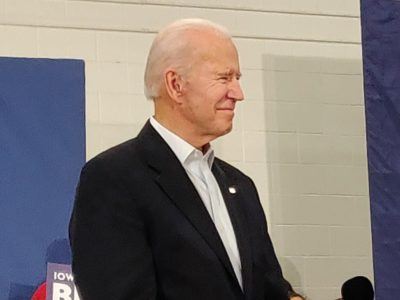by Bill Murray

This column is about travel to less understood parts of the world. In yet another travel constrained month, how about a little political tourism here in Georgia, where none of us really understands the sordid late-Trump morality play swirling around our dual Senate runoffs. We still have thirty days to go. Unlikely circumstance offered our state the fate of the Senate and we are shaky stewards.
Beware pundits bearing wisdom. All their elaborate, self-assured opinions at this early stage tell me that when the national press comes to your town with instant, penetrating analysis of, say, Flint’s municipal water supply, or that crazy Sturgis biker thing, be careful. They bring to mind Emerson’s “the louder he talked of his honor, the faster we counted our spoons.”
All punditry has right now is conventional wisdom. Here on the actual battlefield, candidates compete against one another, the Republican party competes against itself, dark money scurries in the shadows, QAnon jeers from the sidelines and the truth is, nobody has any idea what’s going to happen.
Georgia Democrats’ justified pride in turning the state for Joe Biden comes with a fistful of contradictions. Consider that the Democrats’ two national MVPs this year are black southerners from neighboring states who punched way above their weight, US House Majority Whip Representative Jim Clyburn, Democrat from South Carolina, 80, and former Georgia House Minority Leader Stacey Abrams, 46.
When the primary season began national Democrats looked destined for tag-team fratricide, Sanders and Warren and The Squad on the left, Biden and Klobuchar and Buttigieg glued to the middle. No one had any particular expectations for Joe Biden. He finished 4th in Iowa, 5th in New Hampshire and 2nd, barely, in Nevada. No one was taking charge of the Democrats and the alternative was four more years.
Clyburn took charge. He steadied the party with a ringing endorsement of Biden before his South Carolina home crowd and in a well-meant, astonishing nearly unanimous coalition against Donald Trump, Democratic centrism prevailed. While here in Georgia, Stacey Abrams rejected all that, explicitly.
Before Abrams’ day, Georgia Democrats took the gradual approach to changing red to purple and maybe one day to blue. Before Abrams centrist Democrats, like former Georgia Senator Sam Nunn, showed the (eventual, theoretical) path to – one day – turning blue.
Nunn’s daughter Michelle ran for her father’s seat in 2014. Republican David Perdue, a plug-in, generic businessman who spent a career at companies selling food, household products, jeans, then shoes, then as the CEO of a textile company and a discount chain, defeated Senator Nunn’s daughter. He is standing for reelection.
Abrams, as Minority Leader of the Georgia House, was narrowly defeated in a 2018 race for Governor marked by accusations of voter suppression. She ran against the then Secretary of State, our current Governor Brian Kemp, who effectively presided over his own election.
Stung when denied the Governorship she was convinced she’d won, Abrams torched the centrist playbook and set about registering Georgia voters with unabashed appeals to the left. With help from her New Georgia Project (under investigation by the current Secretary of State), and other groups like Georgia Stand Up, Joe Biden beat Donald Trump by 12,670 votes. Georgia turned blue for the first time since ‘92.
Perhaps Clyburn’s centrism is the only way to victory for Democrats in South Carolina. Probably. But next door in Georgia, where Atlanta’s surging growth suddenly accounts for 57% of the state’s population, Abrams found a new way to move the party forward.
•••••
 Many of us relish the idea that Trump’s defeat will send the Republican party spinning into civil war, but could we have things backwards? Last night the President rallied in Valdosta, in south Georgia, calling the Democratic candidates “the two most extreme far left candidates in the history of the country,” who are planning to implement “the most extreme left wing agenda ever conceived.”
Many of us relish the idea that Trump’s defeat will send the Republican party spinning into civil war, but could we have things backwards? Last night the President rallied in Valdosta, in south Georgia, calling the Democratic candidates “the two most extreme far left candidates in the history of the country,” who are planning to implement “the most extreme left wing agenda ever conceived.”
That’s a wee bit too much, but a throwaway aside perhaps spoke inadvertent truth: “We don’t go away,” the President said. Maybe Donald Trump never goes away, while the Democrats face their own leadership dilemma.
The incoming president is busy rolling out an assemblage of safe hands. The activist left is wary, displaying a non-Trumpian grace, holding its fire but laying markers. It saw how the Biden campaign stuck to his historically corporatist centrism, lost House seats, and then shaky centrists like Abigail Spanberger and Conor Lamb blamed the left. The farther left counters with position papers (1, 2) in direct opposition to those centrists and condemns the Blinken-Haines-Flournoy consultancy WestExec Advisors as a “revolving door” between government and defense contractors.
What does all this pre-inaugural position-staking mean for crafting a national Democratic message? What do actual people think? It turns out that a majority of Americans subscribe to a broadly center left agenda:
Nationally 63% say the government should provide health care coverage for all. Seventy percent of Republicans support access to paid family and medical leave. (Colorado voters mandated twelve weeks of it.) Sixty percent of Americans support tuition-free public college. Arizona raised taxes on higher incomes for public education. Sixty-four percent of Americans want stricter laws on gun sales.
Nevada voters easily repealed their ban on same-sex marriage. Arizona, New Jersey, Montana and South Dakota approved legalizing marijuana. In Nebraska voters capped payday lending interest. And Florida voters approved a $15 minimum wage by two to one while voting to reelect Donald Trump. Majorities on all these issues are solidly to the left of national Republicans.
Much of the farther left clamors for a liberal mirror of Trump’s populism, a tub-thumping effort to capitalize on poll numbers like those to decrease inequality, get a substantial start on a Green New Deal, and expose tax haven protections for big money, for example.
Jim Clyburn, though, will thump no tubs. Clyburn says if “we are going to run on Medicare for All, defund the police, socialized medicine, we’re not going to win.”
Clyburn, it must be said, has helped craft political changes that Abrams inherits as birthright. The Republican campaign consultant Lee Atwater, instrumental in the George H. W. Bush campaign (born in Atlanta and raised in Aiken, SC) looked back on Clyburn’s formative years this way:
“You start out in 1954 by saying ‘Nigger, nigger, nigger.’ By 1968, you can’t say ‘nigger.’ That hurts you, backfires, so you say stuff like ‘Forced busing, states’ rights,’ and all that stuff, and you’re getting so abstract, now you’re talking about cutting taxes, and all these things you’re talking about are totally economic….”
All credit to Rep. Clyburn, his acceptance of Republican framing of police violence and health care is a failure of imagination. The Clyburns, Spanbergers and Lambs signal a haplessness against which the more energized left is eager to fight.
It is no less true for appearing in Jacobin magazine that: “Republicans have been using the same playbook against Democrats for decades. … the GOP … has … branded centrist liberals as dangerous extremists regardless (of) the countervailing Democratic narrative….” But, as they write, “no one was subjected to more of these attacks than Barack Obama and he won the presidency twice.”
So the Dems are in a muddle. The incoming president’s great good fortune was that Trump drew Democrats together across their ideological divide, and repelled many Republicans too. Biden’s campaign mission was to not be Trump, and he did it well.
Trouble is, whatever its plans, the incoming administration has “transitional” stamped all over it. Grappling with two big-ox issues, a new stimulus and the economic recovery on the one hand, plus crafting an actual Coronavirus response in our country and beyond and helping to vaccinate smaller countries that need American help, those initiatives (and plugging the U.S. back into the world) will take every drop of sweat from 2021.
The great Democratic repositioning battle will play out alongside. I’m just about persuaded that the Dems need Joe Biden’s steady hand for around eighteen months. By which time, with good governance and a break here and there, the pandemic ought to be largely broken, what can and should be put back together of the international status quo ante will have been, and with the approach of the midterms, the new generation of Dems, for better or worse, should be making themselves seen and heard in contrast to whatever post-Trump face the Republicans put on.
The best thing about this worst of years: the world won’t look like Donald Trump’s 2020 much longer. In the week and a half after election day the president laid a wreath on Veterans Day, read a statement so filled with bullshit that TV networks bailed out, declared “leaders of other countries have called me to congratulate us on what we’ve been able to do” to combat the virus and drove by a crowd of supporters on his way to play golf.
During those eleven days his CDC reported 1,489,128 new Coronavirus cases. The president simply did not engage further. He hunkered down, wounded, resentful, the way everyone feels when they get fired.
All jobs require vetting. Only a certain kind of person can become an astronaut, for example, certain personality traits lending themselves to the level-headedness you want to see in someone allowed to drive a space ship.
The president has his hands on a great deal of costly American gear, too. It’s sobering that our president-vetting electorate did such dismal work four years ago. A measure of where it has got us: as a contingency against post-election violence, Facebook planned to deploy “internal tools designed for what it calls ‘at-risk’ countries, previously used in Sri Lanka and Myanmar.”
•••••
Everybody knows twentieth century corporatism can’t reign forever. We can’t burn “our ecological capital as if it were disposable income” forever. In 2010 Tony Judt reckoned that the U.S. was thirty years into its “pursuit of material self-interest,” which he thought constituted all that remained of Americans’ sense of collective purpose.
A decade on, Joe Biden will not stop the cult of the market. He will not even try, because if he tried he would fail. He would fail because 70 million Americans have been taught to disdain their government.
In this the U.S. is peculiar. Judt wrote that “nowhere in Europe is there a constituency for abolishing public health services, ending free or subsidized education, or reducing public provision of transport and other essential services,” as there has been here for dismantling the Affordable Care Act and public education.
To succeed against the anti-government crowd the Democrats need a fresh face. Someone who can build a constituency around a couple of those issues I mentioned on which the country broadly agrees. Someone who can draw out the poison, hose away the stagnant anger, banish the bad blood and shape national energy around a new consensus.
I don’t think that’s Joe Biden; I don’t think many people do. I don’t think that’s even his role in succeeding Donald Trump. In a year of tumult Americans chose to touch a safe base if only for a moment by electing an aging white man, before jumping off into an inchoate future furiously aborning.
So who will it be? I am grateful for the coming post-Trump quiet, the Biden breather, but I don’t think a reset radical enough to address the pressing concerns we face today will come from a centrist. The Republicans have shown their willingness and ability to put up a (damaging) change agent. Will the Democrats?
